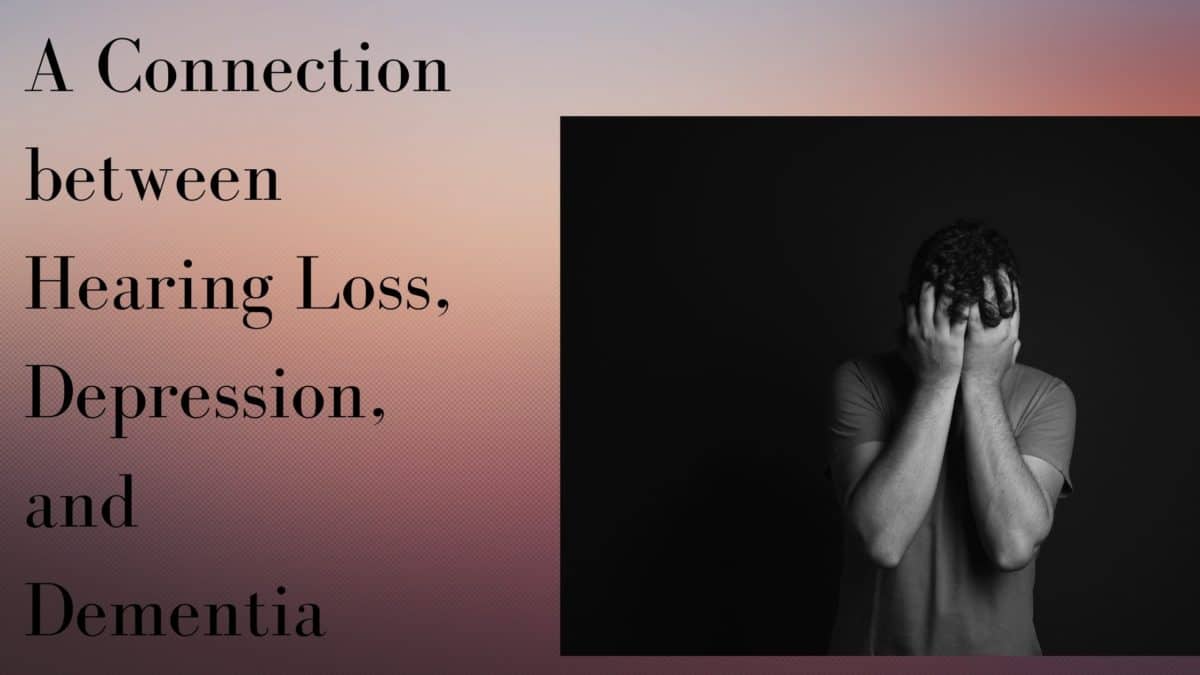- Understanding the Connection Between Tinnitus and Weather - May 17, 2025
- The Most Unexpected Reasons Hearing Aids Can Malfunction - May 9, 2025
- How OAE Testing Unveils Hidden Hearing Loss - April 15, 2025
The body is an interconnected web, with no one part functioning in isolation of the others. However, some body parts seem to be more loosely connected than others. How could the ears be connected to something like mental health or cognition? In order to understand how such seemingly disconnected aspects can be connected, we need to look at the process of communication. Hearing loss profoundly affects our ability to communicate, and that loss of communication ability can affect many other aspects of health and wellbeing. Communication stands between hearing loss and two other important aspects of health—emotional wellbeing and cognitive functioning. Understanding the importance of communication can is a key to understanding the unlikely connection between hearing loss, depression, and dementia.
Hearing Loss and Depression
When our hearing ability is compromised, our ability to carry on conversations can become difficult, as well. Whereas others’ speech used to present itself as a steady stream of information, hearing loss can make a conversation sound more like a jumble of random syllables. As if you were trying to assemble a puzzle without all the pieces, the prospect of carrying on a conversation can become quite daunting, seemingly impossible. When people with hearing loss face the prospect of these challenging conversations, they take many approaches.
Some people become frustrated or angry during conversations. They can even take out these frustrations on the people they love. Others become anxious, worried about the embarrassment they will experience in a conversation that goes wrong. Still others avoid social interaction altogether. As you can see, any of these approaches can lead a person into a state of depression. When frustration and anger harm relationships, a person can feel as if a negative haze surrounds these relationships. The anxiety about difficult conversations and social isolation can contribute to depression, as well. For these reasons, hearing loss is related to higher rates of depression, and communication is the intervening factor between them.
Hearing Loss and Dementia
This difficulty with communication forms a link between hearing loss and dementia, as well. The statistics clearly show that those who have untreated hearing loss have higher rates of dementia than their demographic counterparts who don’t have hearing loss. Researchers have wondered how these seemingly disparate conditions are connected, and communication seems to be the key. When a person with hearing loss struggles to communicate, they are not supplying the brain with the linguistic information it needs to stay agile and sharp.
Although the brain is not a muscle, many cognitive scientists refer to the process of mental “exercise” as necessary to stay sharp. “Use it or lose it,” they say. Conversations are a primary way to use our brains, and the improvisatory style of stimulus and response keeps our minds on track. Brain imaging has shown that those who have hearing loss—even mild loss—use different parts of their brains for auditory processing than those who don’t have hearing loss. Specifically, they recruit the part of the brain that is usually devoted to complex thought to do the simpler work of auditory processing. This shift in brain activity is one explanation for the connection between hearing loss and dementia, but it is important to remember that communication is the link between them.
Seeking Treatment for Hearing Loss
If you have noticed that a loved one is struggling to communicate due to hearing loss, you can now see the importance of seeking treatment. Not only will treatment help your loved one rebuild the connections with others that have become strained, but that treatment might be a preventative measure against depression and dementia, as well. The first step is to get a thorough diagnostic exam, so encourage your loved one to contact our offices for an appointment.
With this diagnosis in hand, we can point your loved one toward the right treatment for their individual needs. The benefits for communication, mental health, and cognition are waiting there, so don’t delay having a conversation with your loved one about the importance of treatment. Issues such as depression and dementia can’t be taken lightly, and hearing loss stands between them as a barrier to fluid and easy communication.

